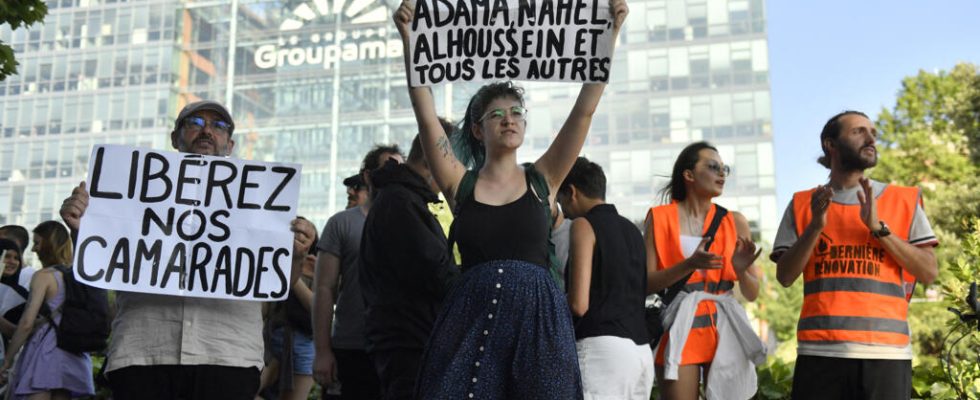This Friday, October 27, Prime Minister Elisabeth Borne presented various measures to support the neighborhoods after the riots last June following the death of Nahel in Nanterre. The associations which work on a daily basis with families in these neighborhoods observe a gap between realities on the ground and government announcements, especially concerning parental responsibility.
4 mins
During an Interministerial Committee of Cities in Chanteloup-les-Vignes, Friday, Elisabeth Borne presented the government’s social responses to provide solutions to the social crisis revealed by the nights of violence that followed the death of young Nahel on June 27 in Nanterre, in the Paris region.
Read alsoUrban riots in France: between firmness and diversity, the government’s two-step response
Fatiha Abdouni founded “ The Pablo’s mothers » in Nanterre, where she has lived for more than twenty years. She is aware of these measures, but does not understand them. “ I have the impression that the government is still sweeping the dust under the carpet. But that’s not how they’re going to solve neighborhood problems. », she regrets at the microphone of Valentin Huguesfrom the RFI company department.
The double punishment of single mothers
It was especially the “parenting” aspect that caught his attention: with sanctions for parents, when a child commits an act of delinquency. “ We work a lot with ”solo” mothers, let’s say single parents, and we know very well to what extent they struggle with their children. Now we’re going to make them feel even more guilty! These families need help and support, of course, but not sanctions. We are going to add a problem to the existing problem, underlines Fatiha Abdouni. Yesterday, when I heard about the measures, I said to myself: here we are going to run into even more difficulties! It really disappoints me that the government doesn’t see things that way. We have problems that are entrenched, there are a lot of women who are overwhelmed, because you know, I’m not telling you anything, in our neighborhoods, there are a lot of women who work in difficult jobs, precarious jobs, it can go from 5 a.m. until 10 p.m. These are women who work hard and live on very little, and to add yet another problem to their backs, I find it really inappropriate! »
Also listenSingle moms: forgotten by public authorities?
At the beginning of September, we organized two breakfasts, recalls Fatiha Abdouni. “We invited a lot of women” who were asked by the association to write down on a board what they wanted and “The first thing that was noted was ‘help isolated women’. We need our children to do better in school. When we need a speech therapist, we have to find her, when we need a psychologist, we have to find her. And in government, the first people they hit are single women. They need support, help, not sanctions. The sanction is so easy, I think. »
An observation shared by Hamayé Konaté, director of a reception and listening association in Montreuil. “ Parents, don’t lie, they fight every day to ensure that their children can have a better life.. » These two associations regret that the State did not consult them before presenting these measures.
Health: reaching out to people who are giving up care
Élisabeth Borne raised public health issues, notes Abdelaali El Badaoui, president of the Banlieues Santé association, at the microphone of Sylvie Koffi. “ There have indeed been measures that have been proposed, we will see how they can be deployed in the short term and in the long term.
What was mentioned were the participatory health centers, which will be deployed and multiplied. So participatory health centers are not just about health professionals, there will also be a whole psychosocial aspect that will be taken into account. And for us, it’s a victory, because having global and holistic health support is what we’ve been asking for from the start, to really be able to involve a certain number of people in the blind spots of social policies. and public and health policies. And then also, the Minister of Health, Aurélien Rousseau, announced it, health mediation to “go towards”, to seek people who give up care. Associative actors must be trained in health mediation. »
Read alsoFrance: the government’s new poverty plan largely disappoints associations
